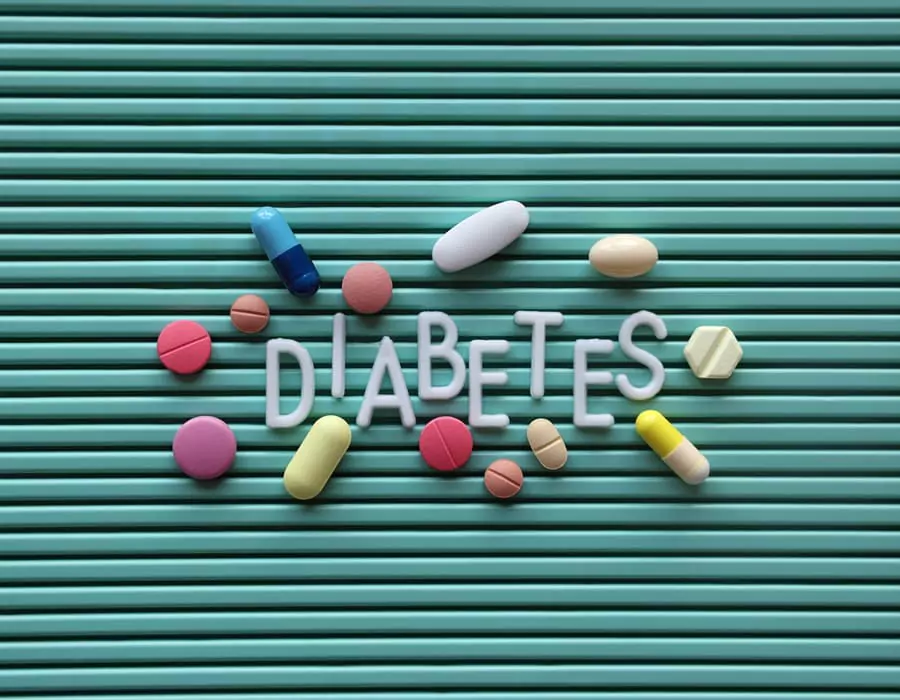
UP TO 40% OFF SITEWIDE






Erectile dysfunction (ED) and diabetes


Table of Contents
- Sexual Health and Diabetes
- Could sexual problems such as erectile dysfunction (ED) be a symptom of diabetes?
- When should I seek treatment for my erectile dysfunction (ED) associated with diabetes?
- What increases my chances of developing erectile dysfunction (ED) with diabetes?
- What type of sexual problems can men with diabetes experience?
- Erectile Dysfunction (ED) and Diabetes
- ED and depression
- Retrograde Ejaculation
- Penile Curvature
- Low Testosterone
- Fertility Problems
- Can women with diabetes have sexual problems?
- Low sexual desire and response
- Painful Sex
- Yeast and bladder infections
- Pregnancy concerns and fertility problems
- How can you prevent and treat sexual problems caused by diabetes?
Sexual Health and Diabetes
As people age, sexual problems such as erectile dysfunction (ED) become more common. In a person with diabetes, these problems can be worse. Having or enjoying sex may be difficult for you or your partner. Today we will talk about erectile dysfunction(ED) and diabetes.
High blood glucose can cause blood vessels and nerves to become damaged. This damage can lead to sexual and bladder problems. One way to prevent this damage to your blood vessels and nerves is by keeping your blood glucose within the target range.
The SugarMDs team can help you prevent or treat any sexual problems caused by diabetes. Problems such as these can be a sign that you need to manage your diabetes in a different way. Healthy sex life can greatly improve your quality of life. Now, is the time to take action if you have any of these concerns.
Could sexual problems such as erectile dysfunction (ED) be a symptom of diabetes?
Can sexuality be affected by diabetes? In short, yes. Any change in sexual function may be an indication of diabetes. Diabetic Neuropathy is a type of nerve damage. Neuropathy happens when diabetes can damage various parts of your body.
This includes your genitals or urinary tract. According to a study published in Diabetic Medicine, men with diabetes may develop erectile dysfunction (ED) 10 to 15 years earlier than men without diabetes. 50 percent of men develop ED after 10 years of diabetes.
When should I seek treatment for my erectile dysfunction (ED) associated with diabetes?
You should see your health care provider for any problems with sex or your bladder. Problems like that could be a sign that you may need to manage your diabetes in a different way. SugarMDs have trained diabetes health professionals and board-certified endocrinologists work together. They as a team help you maintain healthy relationships and enjoy the activities you love.
What increases my chances of developing erectile dysfunction (ED) with diabetes?
You’re more likely to develop sexual problems if you have diabetes and any of the following.
- High blood glucose
- Nerve damage also called neuropathy
- High blood pressure
- High cholesterol
- If you are overweight or have obesity
- Not physically active
- Taking certain medications like blood pressure or depression medications.
- Consume too many alcoholic drinks
- Smoke
What type of sexual problems can men with diabetes experience?
Diabetes can cause changes in your blood vessels, nerves, hormones. Emotional health also may make it more difficult to have satisfactory sex. This can happen due to low sex desire, ejaculation problems and/or erectile dysfunction. Diabetes and other related challenges may make it harder for you to have a child, too.
Erectile Dysfunction (ED) and Diabetes
If you are unable to get or keep an erection firm enough for satisfactory sexual intercourse you have erectile dysfunction (ED). Men who have diabetes are more than 3 times more likely to develop ED. More than half of the men with diabetes will get ED.
Unfortunately, ED may go undetected. Many clinicians do not inquire about sexual health. As an example, a large epidemiologic survey reported that the majority of men with diabetes and ED had never been asked by their clinicians about their sexual function. Therefore, they did not receive treatment.
ED and depression
Men with diabetes who develop ED experience a significant decline in quality-of-life. They also develop an increase in depressive symptoms. In addition to increasing age, the main factors associated with ED are peripheral or autonomic neuropathy, retinopathy(diabetic eye disease), long duration of diabetes, and poor glycemic control.
The severity of ED is positively correlated with diabetes duration. Moreover, poor glycemic control, diuretic (water pill) therapy, and presence of diabetic eye disease, chronic diabetic kidney disease or neuropathy contribute to it. The presence of cardiovascular disease is a huge risk factor for ED.
In addition, studies suggest that the presence of ED is a predictor of cardiovascular events in men with diabetes. this is true even for men without diabetes. One of the best ways to help prevent and treat ED caused by nerve damage and circulation problems is good diabetes management.
A health professional such as SugarMDs specialists and other providers in the team can help treat ED with medication and make improvements in your diabetes self-care plan to improve your diabetes control in your terms and reduce future risk of cardiovascular events such as heart attacks and strokes.
Retrograde Ejaculation
Diabetes can rarely cause retrograde ejaculation. This happens when some or all of your semen goes into the bladder instead of exiting your penis during ejaculation. When retrograde ejaculation occurs, semen enters your bladder. Semen mixes with urine and is later urinated out. A urine sample after ejaculation can show if you have retrograde ejaculation. In some men, ejaculation may not occur at all.
Penile Curvature
Men with diabetes are more likely to have Peyronie’s disease (also called penile curvature). Peyronie’s disease causes the penis to curve when erect due to scar tissue. These curves in the penis can cause sexual intercourse to be painful or difficult. Men with Peyronie’s disease may also have ED.
Low Testosterone
With age, men’s testosterone levels naturally become lower. These lower testosterone levels can be the cause of some cases of ED. This can provide an explanation of why some men often feel tired, depressed, or have a lower sex drive. Men who are more likely to have low testosterone include diabetic men who are older or overweight.
Fertility Problems
Many studies have shown that men with diabetes may have problems with their sperm. This can make it harder to conceive. According to one of these studies, sperm may be slow or not move very well. Sometimes sperm may not be able to fertilize a woman’s egg well. If you want to conceive, work closely with your healthcare provider as well as your partner.
Can women with diabetes have sexual problems?
Yes. Women with diabetes can experience low sexual desire, vaginal dryness, and painful sex. Those can be caused by nerve damage, reduced blood flow to the genital area and hormone changes. Other conditions such as menopause can cause these symptoms as well. If you notice any changes such as these, its important to talk with your health care provider or your SugarMDs team.
Low sexual desire and response
Low sexual desire and response can include the following:
- Unable to become or stay aroused
- Not having enough vaginal lubrication
- Having little to no feeling in your genitals
- Being unable to have an orgasm or rarely having one
Your body and mind go through many changes with diabetes. High and low blood glucose levels can affect your sex life if you become aroused. You may also find yourself more tired, depressed or anxious which can cause you to become less interested in sex. SugarMDs can help you make changes to your diabetes care plan so that you’re back on track. Women who keep blood glucose levels in target range are less likely to have nerve damage, which can lead to low sexual desire and response.
Painful Sex
Diabetes can make sexual intercourse uncomfortable or painful for some women. In women with diabetes, the nerves that signal your vagina to lubricate during stimulation can often become damaged. Prescription or over the counter vaginal lubricants can help with vaginal dryness. Good management of your blood glucose can help prevent nerve damage such as this.
Yeast and bladder infections
Diabetes makes women more likely to develop yeast infections. Yeast organisms can grow more easily when blood glucose levels are higher. These infections are uncomfortable or painful and can prevent the enjoyment of sex. Fungal infections are typically treated at home with prescription pills. It is important for you to discuss your symptoms with your endocrinologist.
Pregnancy concerns and fertility problems
If you plan to become pregnant and have diabetes, it’s important to get your blood glucose levels close to your target range. More importantly, before you become pregnant. Even before you know you’re pregnant, high blood glucose can harm your baby during the first weeks of pregnancy.
If you are already pregnant and have diabetes, see your provider as soon as possible. This will help make a plan to manage your diabetes. Working together with your healthcare team such as SugarMDs and following your diabetes management plan can help you maintain a healthy pregnancy and have a healthy baby.
How can you prevent and treat sexual problems caused by diabetes?
Preventing nerve damage by managing your diabetes can reduce the risk of developing sexual problems. You can work with your health care team to help treat and prevent sexual problems.
- Keeping your blood glucose, blood pressure and cholesterol levels close to your target numbers
- Being and staying physically active
- Keeping and maintaining a healthy weight
- Quitting smoking if you do smoke
- Getting help for any emotional or psychological problems that arise
Sexual intercourse is a physical activity, therefore, be sure to check your blood glucose level before and after sex especially. Both high and low blood glucose levels can cause problems during sex. Reach out to diabetes doctors at SugarMDs to see how we can help you make a change in your lifestyle. Let us help you manage your diabetes in a new way.
Written By Dr. Ahmet Ergin
466 total articles
Meet Dr. Ahmet Ergin, a highly skilled and dedicated endocrinologist with a passion for diabetes care. Dr. Ergin earned his medical degree with honors from Marmara University in Istanbul. He completed internal medicine residency and endocrinology fellowship at Cleveland Clinic. Dr. Ergin is board-certified in Internal Medicine, Endocrinology, Diabetes, and Metabolism due to his vast medical expertise. He's a certified diabetes educator, author of “The Ultimate Diabetes Book,” and founder of “the SugarMD YouTube channel.” Dr. Ergin offers exceptional diabetes care to his patients in Port Saint Lucie, FL, helping them manage effectively. For a closer look into his insights and experiences, connect with Dr. Ahmet Ergin on LinkedIn, Instagram, and YouTube.”
Disclaimer: These statements have not been evaluated by the Food and Drug Administration. Information on this website isn't intended to treat, cure or prevent any disease. Discuss with your doctor and do not self-treat.
Products











